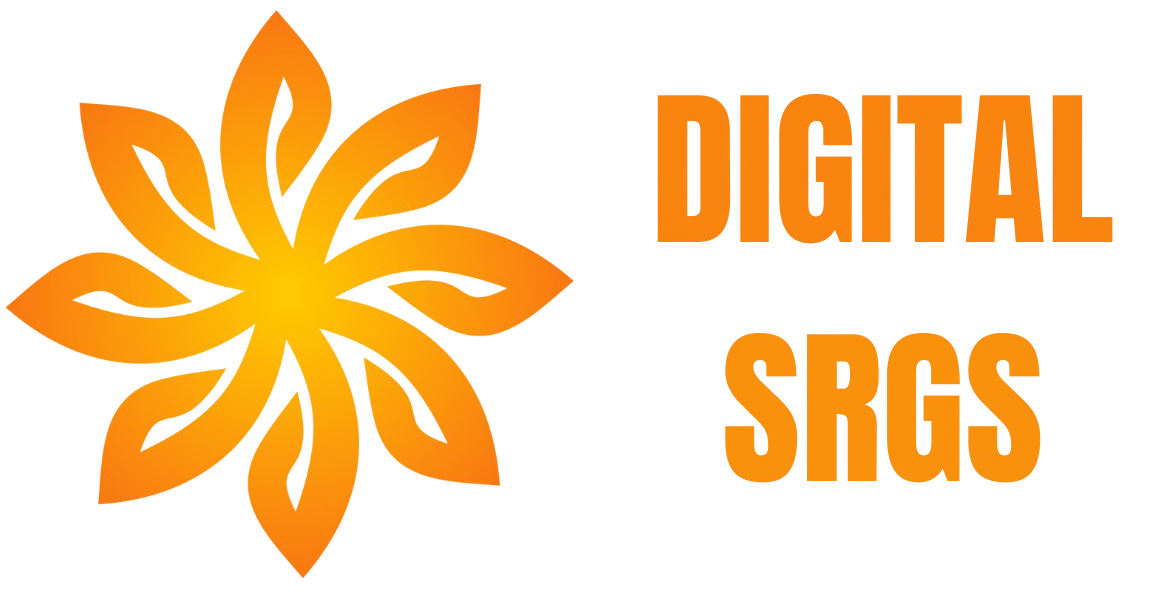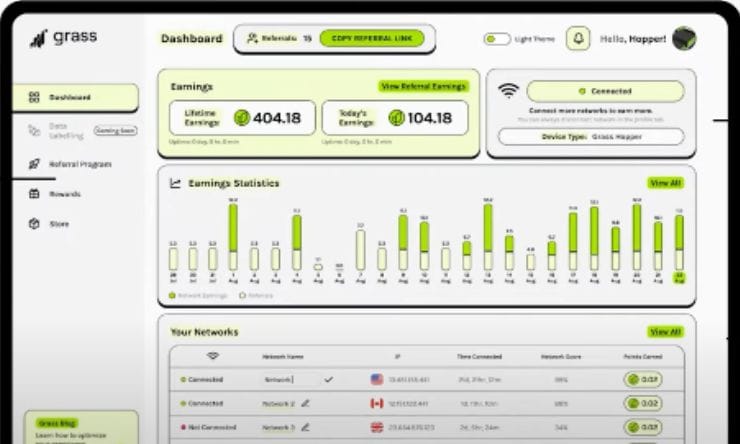Table of Contents
ToggleIntroduction to Social Media Management Tools
Social media has completely changed how companies interact with their customers. As we move into 2025, it’s clear that effective social media management is not just an option; it’s a necessity. Businesses require strong tools to keep ahead of the curve as platforms and customer behavior change. Social media management solutions are useful in this situation.
These innovative solutions streamline processes, enhance engagement, and provide valuable insights that can drive marketing strategies. Whether you’re a small business owner or part of a large marketing team, understanding which tools to leverage can make all the difference in your digital presence. Let’s dive into some of the top social media management tools set to dominate in 2025 and explore how they can elevate your brand’s performance online.
The Importance of Social Media Management in 2025
As we enter 2025, social media remains a cornerstone of digital marketing. Its influence on consumer behavior is undeniable. Brands need to navigate this landscape wisely.
Effective social media management helps businesses engage with their audience in real time. This fosters community and encourages loyalty. With the rise of new platforms, staying updated is crucial for brand visibility.
Moreover, data analytics plays a significant role today. Understanding what content resonates can drive targeted campaigns that yield better results.
In an era where attention spans are dwindling, timely responses matter more than ever. Automated tools allow brands to maintain their presence without sacrificing quality interactions.
The competition is fierce; effective management can set a business apart from its rivals. Embracing these strategies ensures that companies not only keep pace but thrive within the evolving ecosystem of social media in 2025.
Top Social Media Management Tools

It may be intimidating to navigate the huge world of social media. Fortunately, there are tools designed to ease this process and enhance your online presence.
Hootsuite stands out for its user-friendly interface and robust analytics features. It allows brands to manage multiple accounts seamlessly from one dashboard.
When it comes to scheduling articles across several platforms, Buffer is renowned for its ease of use and efficiency. Its intuitive design helps marketers save time while maintaining a consistent posting schedule.
Sprout Social excels with its in-depth reporting capabilities. This tool provides insights that help businesses understand audience engagement better.
Later focuses on visual content planning, making it perfect for Instagram-heavy strategies. Its drag-and-drop functionality simplifies post organization.
Agorapulse offers excellent customer relationship management features alongside standard scheduling options. It fosters meaningful interactions between brands and their audiences effortlessly.
These tools cater to diverse needs, ensuring there’s something effective for every business strategy.
A. Hootsuite
Hootsuite is a powerhouse in the realm of social media management tools. It offers an intuitive interface that simplifies content scheduling across multiple platforms.
Users appreciate its ability to monitor various accounts from one dashboard, saving time and reducing stress. Major networks including Facebook, Instagram, LinkedIn, and Twitter are supported by the tool.
One standout feature is Hootsuite’s analytics capabilities. These insights empower businesses to understand their audience better and refine their strategies accordingly.
Collaboration made easy teams can work together seamlessly within the platform, ensuring everyone stays on the same page with campaigns.
Additionally, Hootsuite’s extensive app integrations allow users to customize their experience further by connecting other services they rely on daily. This flexibility makes it suitable for both small businesses and large enterprises alike.
B. Buffer
Buffer stands out as a user-friendly social media management tool, perfect for businesses of all sizes. Its intuitive interface allows users to schedule posts across multiple platforms with ease.
One of Buffer’s key features is its powerful scheduling system. Users can queue up content and specify the optimal times for posting, ensuring maximum engagement. This feature saves time while maintaining a consistent online presence.
Analytics are another strong point for Buffer. It provides insights into post-performance, helping marketers understand what resonates with their audience. By tracking metrics like engagement rates and shares, users can refine their strategies effectively.
Collaboration is seamless with Buffer too. Teams can work together by sharing access without compromising security. This makes it an excellent choice for agencies or teams that handle multiple clients.
With its focus on simplicity and effectiveness, Buffer remains a top choice in the realm of social media management tools.
C. Sprout Social
One of the best social media management tools for teams of all sizes is Sprout Social. Using its functions is a snap because of its intuitive layout.
One of Sprout’s key strengths is its robust analytics capabilities. Businesses can dive deep into performance metrics, allowing them to understand their audience better and refine strategies accordingly.
Engagement tools are another highlight. With Sprout Social, managing conversations across multiple platforms becomes seamless. Teams can monitor mentions and respond in real-time, fostering stronger connections with followers.
Scheduling posts is straightforward too. Users can plan content ahead of time while ensuring optimal timing for maximum reach.
Additionally, the collaboration features enable team members to work together efficiently on campaigns or projects without stepping on each other’s toes. This promotes creativity and ensures everyone stays aligned on goals.
D. Later
Later is a standout social media management tool, especially for visual content. It excels in helping users plan and schedule posts across various platforms with an emphasis on Instagram.
The drag-and-drop feature allows marketers to organize their images effortlessly. This visual-centric approach makes it easy to see how the grid will look before going live.
Users appreciate Later’s analytics capabilities. They can track engagement metrics and determine the best times to post, optimizing audience reach.
Additionally, Later’s linkin.bio feature transforms static profiles into shoppable pages, giving brands more ways to engage customers directly from their social media accounts.
This focus on visuals combined with practical functionalities makes Later a powerful ally for businesses eager to enhance their online presence without overwhelming complexity.
E. Agorapulse
Agorapulse stands out as a comprehensive social media management tool designed for teams of all sizes. Its intuitive interface makes it easy to navigate, even for beginners.
One key feature is the unified inbox, allowing users to manage messages and comments from multiple platforms in one place. This streamlines communication and enhances responsiveness.
Analytics are another highlight; Agorapulse offers detailed reports that help businesses understand their performance across channels. By tracking engagement metrics, brands can refine their strategies effectively.
Additionally, Agorapulse enables scheduling posts at optimal times based on audience activity. This ensures content reaches followers when they’re most active.
Collaboration tools also make it easier for teams to work together seamlessly. Assign tasks and monitor progress without losing track of your campaigns’ goals or timelines.
With its robust features tailored for marketers, Agorapulse remains an essential companion in the journey toward social media mastery.
Features and Benefits of Each Tool
Hootsuite offers a robust dashboard that simplifies social media scheduling. Its analytics feature allows users to track engagement metrics effectively. This helps brands refine their strategies.
Buffer is known for its user-friendly interface. It supports multiple platforms, making it easy to share content seamlessly across channels. The built-in scheduling tool ensures posts go live at optimal times.
Sprout Social excels in reporting capabilities. Users can access detailed insights into audience behavior and campaign performance. Its collaboration features are perfect for teams working together on projects.
Later focuses on visual planning for Instagram but extends support to other networks too. It provides a unique preview of your feed, ensuring aesthetic consistency before posting.
Agorapulse stands out with its inbox management system, streamlining interaction with followers. Its comprehensive reports allow businesses to measure success and adjust tactics swiftly.
How These Tools Can Help Businesses and Marketers in 2025
Social media management tools are set to revolutionize how businesses and marketers operate in 2025. These platforms streamline content creation, scheduling, and analytics, allowing teams to focus on strategy rather than mundane tasks.
With enhanced automation features, brands can engage with their audience in real time. This immediate interaction fosters relationships and builds trust.
Moreover, advanced analytics provide insights into customer behavior. Marketers can tailor campaigns based on data-driven decisions. Understanding what resonates with audiences leads to more effective strategies.
Collaboration is another key benefit. Teams can work together seamlessly across various locations using these tools. Sharing ideas becomes simpler, making creative processes quicker and more efficient.
As social media evolves, so do the challenges it presents. By leveraging robust management tools, businesses stay ahead of trends while maintaining a consistent online presence that captivates their target demographics.
The Future of Social Media Management Tools
The landscape of social media management tools is evolving rapidly. As technology advances, we can expect to see greater integration of artificial intelligence and machine learning features. This will enable more personalized content creation and audience targeting.
Automation will play a key role. Businesses will be able to schedule posts, analyze engagement data, and respond to customers in real-time without manual intervention. This efficiency saves time and resources.
Moreover, the rise of augmented reality (AR) and virtual reality (VR) offers exciting possibilities for immersive marketing experiences. Social media platforms may incorporate these technologies into their frameworks, allowing brands to create unique interactions with users.
Data privacy remains a significant concern that developers must address. Future tools need robust security measures while ensuring compliance with regulations like GDPR or CCPA.
As competition intensifies among social media platforms themselves, innovation in management tools will become essential for marketers aiming to stay ahead.
Why are social media management tools important?

Social media management tools are essential for any business aiming to thrive in a digital landscape. They streamline processes, allowing marketers to manage multiple platforms from one dashboard.
These tools enhance efficiency by scheduling posts ahead of time. This means brands can maintain a consistent online presence without needing to be active at all hours.
Data analytics is another crucial advantage. Social media management tools provide insights into audience engagement and behavior, enabling businesses to refine their strategies effectively.
Collaboration becomes seamless as well. Teams can work together on campaigns, share ideas, and monitor progress in real-time.
Additionally, these tools help track brand reputation. Businesses can promptly respond to mentions or feedback, fostering a positive relationship with their audience.
In an ever-evolving social space, staying organized and informed is vital for success. Social media management tools offer the necessary support that empowers brands to navigate this dynamic environment confidently.
Conclusion
Social media management tools are essential for businesses and marketers navigating the complex landscape of digital marketing in 2025. As social platforms evolve, having robust tools at your disposal can streamline efforts, enhance engagement, and provide valuable insights.
With leading options like Hootsuite, Buffer, Sprout Social, Later, and Agorapulse at your fingertips, you can effectively manage multiple accounts and analyze performance metrics effortlessly. Each tool comes with unique features tailored to meet diverse needs from scheduling posts to monitoring brand mentions all designed to drive better results.
Looking ahead into the future of social media management tools reveals a promising horizon filled with innovations. Artificial intelligence will play a significant role in automating tasks while providing deeper analytics. Enhanced user interfaces may make these platforms even more intuitive.
As social media continues to shape consumer behavior and communication trends globally, equipping yourself with the right tools is not just advantageous; it’s crucial for staying competitive in an ever-evolving market landscape. Embracing these technologies today prepares businesses for tomorrow’s challenges while maximizing their potential online presence.




